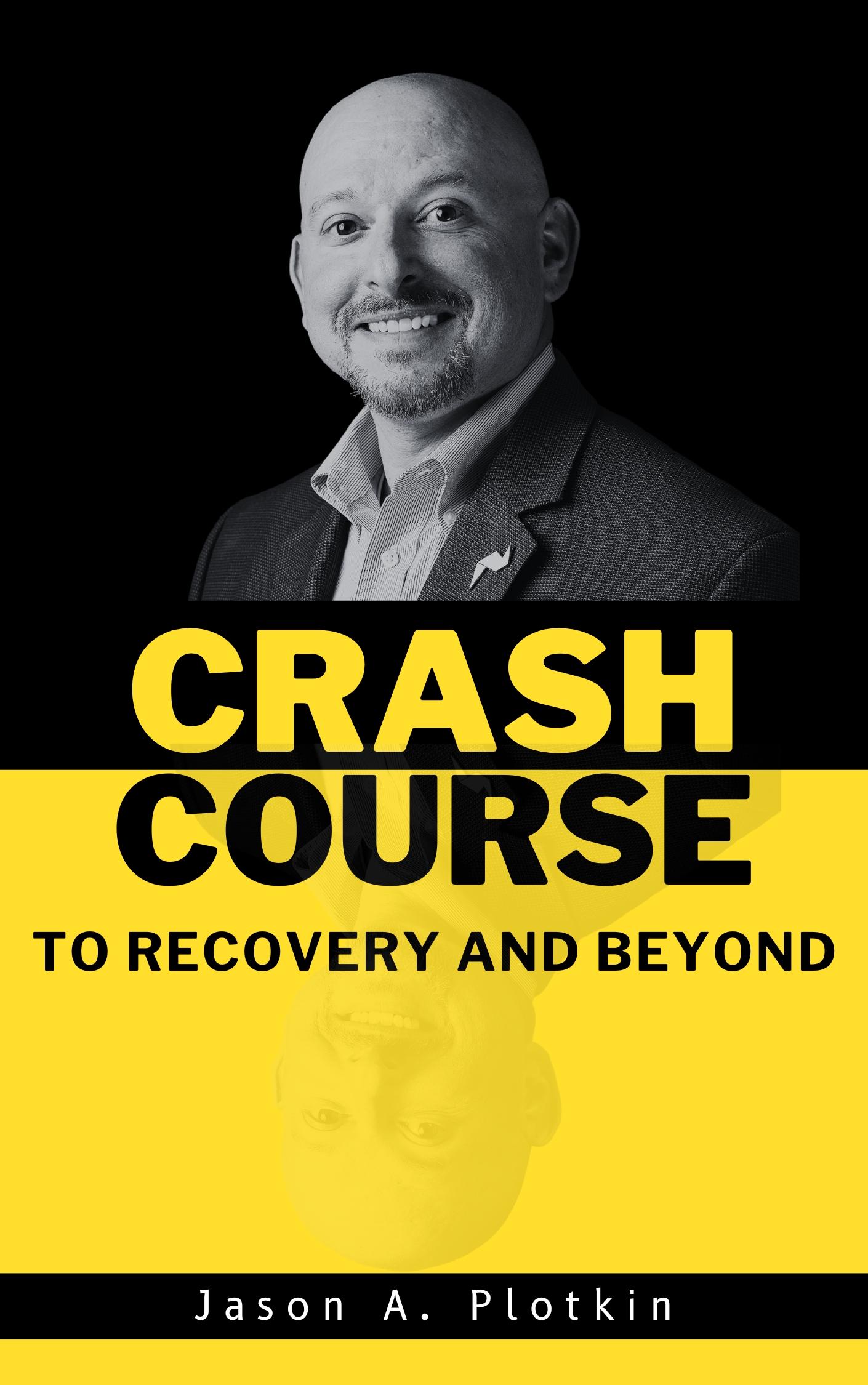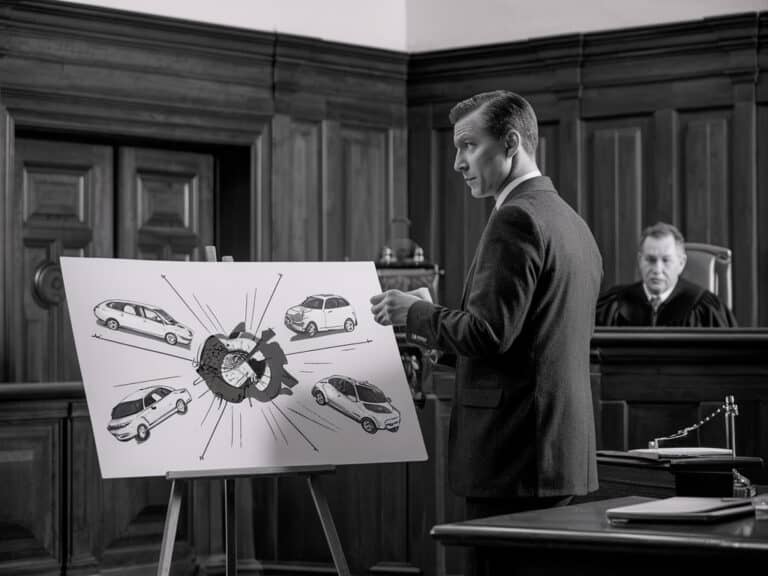Imagine a moment that changes everything; one second, you’re on your way home, and the next, you find yourself caught in the whirlwind aftermath of an auto accident. For many, this scenario marks the beginning of a silent battle with PTSD from auto accident. It’s more common than most think. In fact, car crashes are the number one trigger of PTSD among civilians in the U.S., thrusting survivors into an invisible struggle that can linger far beyond physical injuries.
The statistics are staggering: about 9% to as high as 30% of car accident survivors develop symptoms within just a month of their ordeal. Despite its prevalence, we still tend to discuss it in hushed tones and half-secrets. This silence can be deafening for those affected, especially when dealing with PTSD from auto accidents.
A crash doesn’t end when the debris is cleared away; for some, it’s only just begun. From sleepless nights replaying what happened to an overwhelming fear of getting behind the wheel again—these are but glimpses into life post-trauma.
Table Of Contents:
- Understanding PTSD After a Car Accident
- Navigating the Journey to Recovery
- Legal Considerations and Compensation Claims
- The Role of Support Systems in Healing from Trauma
- Navigating Insurance Claims and Financial Assistance
- The Importance of Early Intervention and Awareness
- Seeking Professional Help – When to Reach Out
- FAQs in Relation to Ptsd From Auto Accident
- Conclusion
Understanding PTSD After a Car Accident
Signs and Symptoms of PTSD Post-Auto Accident
If you’ve been in a car accident, you may find yourself reliving the traumatic event over and over again. You might look for ways you could have avoided the accident or try to figure out who’s to blame.
Many individuals with PTSD after a car accident become obsessed with the incident, talking about it constantly or reviewing it repeatedly in their minds.
The Link Between Car Accidents and PTSD Development
Did you know that car accidents are the leading cause of PTSD among civilians in the U.S.? According to the American Psychological Association, about 9% of car accident survivors develop this condition.
Recent studies suggest that as many as 30% of car accident survivors experience PTSD symptoms within a month of the crash. Factors like low income, family history of mental illness, and prior trauma exposure can increase the risk.
Navigating the Journey to Recovery
Available Treatments for PTSD Following an Auto Accident
If you’re struggling with PTSD after a car wreck, know that you’re not alone. A multi-disciplinary approach is essential for managing trauma symptoms.
Treatment options may include cognitive-behavioral therapy, exposure therapy, and medication. Patients with poor social support, comorbidities, or who witnessed death should be routinely screened for PTSD.
Coping Strategies for Managing Trauma Post-Collision
Coping with PTSD after a car accident can feel overwhelming, but there are strategies that can help. Kicking back with some relaxation methods, jotting down your thoughts in a journal, and moving around can really do wonders for you.
It’s important to seek professional help if you’re experiencing persistent or severe symptoms. Untreated PTSD can lead to other health issues and impact daily functioning.
When road traffic accident (RTA) survivors develop PTSD, they are at greater risk of developing other medical diseases such as asthma, hypertension, and peptic ulcer disease [7]. If left untreated, it leads to the individual, as well as community living conditions, becoming more endangered [8].
Legal Considerations and Compensation Claims
Understanding Your Rights and the Legal Process
If you’ve developed PTSD after a car accident, you may be entitled to compensation. It’s important to understand your legal rights and the claims process.
There shouldn’t be any shame in seeking help if you believe you have PTSD, particularly if you or a loved one was seriously injured in the crash. However, because MVA-related PTSD isn’t frequently talked about, many people may not recognize the symptoms.
How to Claim Compensation for PTSD Post-Car Accident
To claim compensation for PTSD after a car accident, you’ll need to document your symptoms and treatment. This may include medical records, therapy notes, and expert testimony.
Working with an experienced personal injury attorney can help ensure your rights are protected and you receive fair compensation for your suffering. Feel free to dig into your legal choices.
The Role of Support Systems in Healing from Trauma
The Importance of Community and Professional Support in PTSD Recovery
Support systems play a crucial role in healing from trauma after a car accident. Surrounding yourself with understanding family and friends can provide a sense of safety and validation.
Seeking professional help, whether through individual therapy or support groups, can also be incredibly beneficial. Finding people who’ve walked in similar shoes, dealing with the same kinds of tough experiences, can really make you feel less alone and cut through that heavy blanket of shame.
Post-traumatic stress disorder (PTSD), often triggered by traumas like car accidents, can disrupt daily life and social enjoyment. Awareness of the five common symptoms of PTSD after a car accident can aid in early identification and timely medical professional help. This not only supports full recovery but also paves the way for potential compensation claims for mental health impact.
After a car accident, knowing the signs of PTSD is crucial. Seeking therapy and exploring legal rights can pave the way for recovery and compensation. Don’t overlook support from loved ones and professionals to tackle trauma.
Navigating Insurance Claims and Financial Assistance
How to Navigate Insurance Claims Post-Accident
After a car accident, dealing with insurance claims for PTSD treatment costs can feel overwhelming. But you’re not alone.
Getting the money together for PTSD-related costs can be a real challenge for many folks out there. The key is to document everything and be persistent.
Keep detailed records of all your medical appointments, therapy sessions, and any other expenses related to your PTSD treatment. This will be crucial when filing insurance claims.
Don’t be afraid to ask for help navigating the claims process. Reach out to your insurance company, mental health providers, and even legal professionals if needed.
Finding Financial Aid for Treatment Costs
The cost of PTSD treatment after a car accident can be significant. Lucky for you, there are a bunch of ways out there to snag the financial help you’re after.
Start by checking with your health insurance provider to see what mental health services are covered under your plan. Many plans cover therapy sessions and medication for PTSD.
If you’re struggling to afford treatment, there are also organizations that provide financial aid specifically for PTSD-related expenses. Do some research online or ask your mental health provider for recommendations.
You may also be eligible for government assistance programs like Medicaid or Medicare, depending on your income and other factors. Don’t be afraid to explore all your options.
Remember, getting the treatment you need is crucial for your recovery. Don’t let financial barriers stand in your way.
The Importance of Early Intervention and Awareness
The Benefits of Early Detection and Intervention in Preventing Chronic Conditions
Early detection of PTSD symptoms post-accident is crucial for preventing the development of chronic conditions. The sooner you recognize the signs and seek help, the better your chances of a full recovery.
Studies show that early intervention can significantly reduce the severity and duration of PTSD symptoms. This is why awareness campaigns on mental health post-accident are so important.
By educating people about the common symptoms of PTSD and encouraging them to seek help early on, we can prevent many cases from becoming chronic and debilitating.
If you or someone you know has experienced a traumatic car accident, don’t wait to reach out for support. The earlier you get help, the better your chances of healing and moving forward.
Seeking Professional Help – When to Reach Out
Knowing when to seek professional help for trauma-related difficulties after a car accident can be tricky. But there are some clear signs that it’s time to reach out.
If you’re experiencing symptoms like flashbacks, nightmares, severe anxiety, or depression that are interfering with your daily life, it’s important to seek therapy post-car accident. Don’t try to tough it out on your own.
If you find yourself steering clear of anything that brings back memories of the accident, feeling like you’re just going through the motions without really connecting emotionally, or maybe even leaning on not-so-great habits like substance abuse to get by, it might be time to consider getting some professional guidance.
Remember, seeking help is a sign of strength, not weakness. PTSD is a serious condition that requires professional treatment. Don’t hesitate to reach out to a mental health provider who specializes in trauma recovery.
With the right support and treatment, you can overcome the challenges of PTSD and reclaim your life after a car accident. You don’t have to suffer in silence.
Document everything and be persistent with insurance claims to cover PTSD treatment costs. Explore all financial aid options, including government programs and mental health organizations. Early detection of PTSD is key; don’t hesitate to seek professional help if you’re struggling post-accident.
FAQs in Relation to Ptsd From Auto Accident
How long does PTSD last after a car accident?
PTSD duration varies. Some individuals may shake it off in a matter of months, while others may grapple with it for years. The key to recovery hinges on timely therapy and support.
What does PTSD from a car accident look like?
Common signs of PTSD from a car accident include nightmares, flashbacks to the crash, unease in cars, or jumpiness. It’s more than just being shaken up.
Can you claim PTSD from a car accident?
Absolutely. If trauma impacts your life post-accident, compensation claims can cover therapy costs and lost earnings due to PTSD.
What is a trauma response to a car accident?
Trauma responses can include immediate shock post-crash or longer-term reactions like anxiety around driving or avoidance of vehicles altogether.
Conclusion
So, the journey through understanding PTSD from auto accident feels a lot like unraveling a mystery novel where every page turned uncovers another layer. It’s complex, it’s nuanced, and let’s be honest—it can feel downright daunting at times. But here’s the thing: this isn’t fiction; it’s real life for so many out there.
The road to recovery might seem long and winding, with more questions than answers at times. Yet what we’ve uncovered together is that help exists in many forms—from cutting-edge treatments to powerful support systems ready to lift you up when you’re feeling down.
And remember, just as no two accidents are exactly alike, neither are any two paths to healing. The essence of overcoming PTSD after an auto accident lies not in following a prescribed route but in finding your own way forward—one step at a time.
We talked about legal rights because yes—they matter too! Knowing how to claim compensation or navigate insurance claims doesn’t just offer financial relief; it brings peace of mind during turbulent times.
This conversation—yes conversation—because that’s what we’ve been having here (not some monologue), has hopefully opened doors for anyone struggling silently. Maybe even lit up dark corners with hope and shown that while the scars may remain, they don’t define us.
In closing: Let’s keep talking about PTSD from auto accidents because silence only feeds into fear. And if there’s one thing louder than fear itself—it’s our collective voices rising above it. Ready? Let’s join together and break the silence, empowering ourselves and others to heal.





